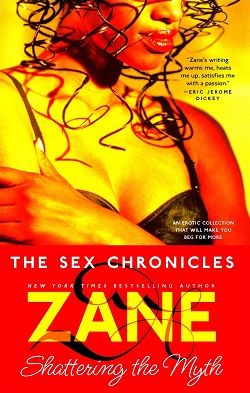After loitering to take a picture with her phone of a blaze of vermilion flowers climbing over a high wall and creeping along a telephone wire above the street, Elle eventually found herself in Triq Bonnard.
The street was short and narrow and crowded with houses, some in disrepair. One had its windows boarded up with For Sale painted on the wood.
Elle paced along the pavement looking for signs of life, wiping a sheen of sweat from her forehead. She’d been e-mailed a picture of the entrance to the Nicholas Centre, a tall wall with a green door set into it, but looked for it in vain. And there was no one around for her to ask. No car tried to navigate the narrow strip of road left by parked vehicles.
At the top of the street, bemused by the absence of green doors set in tall walls, she prepared to make her way down the other side.
Then a smiling man appeared from around a jink in the road. ‘Elle? I’m Joseph Zammit. I saw you through the lounge window.’
Recognising the small, thickset man immediately from the Nicholas Centre website, Elle stuck out her hand in relief. ‘Joseph. I’m glad you found me, even if I couldn’t find you.’
Joseph wore black-framed glasses and his hair was conventionally short. He was middle-aged, a little overweight, and socks showed at the toes of his sandals. ‘You turned away too soon.’ He ushered her a few steps further and she realised that what she’d assumed to be another street was actually a continuation of Triq Bonnard, and there was the green door in the wall standing ajar beside a small black plaque: ‘Ic-Centru Nicholas’ and, underneath, Nicholas Centre.
It wasn’t a grand entrance, but it opened into a courtyard with a bench and a limestone fountain, although it wasn’t working. Tall windows and balustraded balconies made the building itself unexpectedly imposing.
He led the way across the courtyard, up the steps to the double doors and into a hall with archways opening into other rooms. After the sun outside, the coolness was a relief.
Joseph’s office was to the right. A desk was shoved against the wall under the weight of a heap of paperwork and a laptop. Several mismatched chairs faced one another untidily.
From e-mails, Elle knew that Joseph’s mother was English, a retired teacher, and his late father had been a Maltese hotelier. He spoke perfect English, if with a Maltese rhythm and flow, but when his telephone rang he slid it out of his shirt pocket and answered in rapid Maltese.
Elle took a seat while he located a piece of paper from the chaos of his desk, and then read something from it to the caller.
After he ended the call, he apologised. ‘I spend too much time on the phone.’ He took one of the other seats, a green office chair with its sponge filling escaping, and his smile flashed. ‘Welcome to Malta.’
All the joy and anticipation of the past weeks swooshed through Elle’s heart and she found herself beaming as volunteering began finally to transition from pipe dream to reality. ‘It’s fantastic to be here.’
He inclined his head. ‘And welcome to Nicholas Centre. Some of our computers are old and cranky but I hope that you can get the best out of the equipment and encourage the youngsters to make the most of what we have.’
‘I’m sure I can.’
‘We have all kinds of young people attending the centre. Some use the gym, others play games, some keep up with Facebook. They come for company, because they’re bored or because their friends do. Some participate in workshops or want help with a project. Sometimes—’ He smiled. ‘Sometimes, you’ll find you have to step back from your expectations. People won’t turn up for a workshop or they’ll bring eight friends who haven’t signed up. They’ll leave halfway through, they’ll decide to play a game instead of completing a task. You should be aware.’
‘I understand. Will it be a problem that I just speak English? I’ve only learned a little Maltese.’
‘Sometimes,’ he said, honestly. ‘But English is one of our official languages. Lots of companies come to Malta because English is widely spoken. Lots of tourists, too. English is part of Maltese education.
‘I’ll show you around and introduce you to Maria. You don’t have your first structured session until Friday but you said that you have a programme of work to get through first?’
Elle followed him across the hall. ‘I want to assess the equipment and see where improvements can be made.’
The Nicolas Centre had once been quite grand. The rooms were large and lofty and wrought iron graced the outsides of the windows. Ornately moulded plasterwork on the ceilings was a recognisable remnant of splendour, though patched and pitted.
But in the lounge, the furniture was worn and the walls scuffed. DVDs and CDs in tatty cases flanked television and music systems and a bookcase was jumbled with books and magazines.
A notice board displayed photos of Joseph; his wife, Maria; and others — a sandy-haired man with freckles and a wide smile; a darker man with a thin, sensitive face; and a more mature woman. Under the sandy man’s picture it said, Oscar, from the Netherlands and beneath the thin man, Axel, from Germany. It was written in Maltese, also. The woman was, Aileen, from England (but a long time ago). Elle already knew that Aileen was Joseph’s mother, who came in to help, often in the computer room. She was great with written English but not a techie.
Elle was touched to see her own photo: Welcome to Elle, from England, who will be looking after our internet cafe and running our IT sessions. After Lucas’s reaction, it was nice that someone was glad to see her.
Down the passage, a games room held a pool table and two lads playing table tennis across a ragged net. It led into a gym room containing a cross trainer and a rowing machine, a mini rainbow of gym balls and a rack of weights. ‘Impressive.’
‘We were lucky. This equipment was donated.’ Joseph patted the cross trainer.
Across the hall he showed her a small musty room filled with racks of clothes. ‘People donate what they no longer need, which Maria, in her housemother role, kindly washes. Some of the children welcome the clothes.’ Joseph grimaced. ‘But it sometimes seems that the more in need a child is, the less likely he or she is to accept. Even Maria cannot find a way to make a gift to some of our young visitors.
‘Let’s find Maria. Her first language is Maltese. Me, I speak English with a Maltese accent and Maltese with an English accent.’ He laughed.
The kitchen held a refectory table, cupboards, counters, and a couple of smaller tables. They found Maria unpacking a box of fizzy drinks, her thick dark hair clipped up. A door to a small street stood open, letting in the air.















